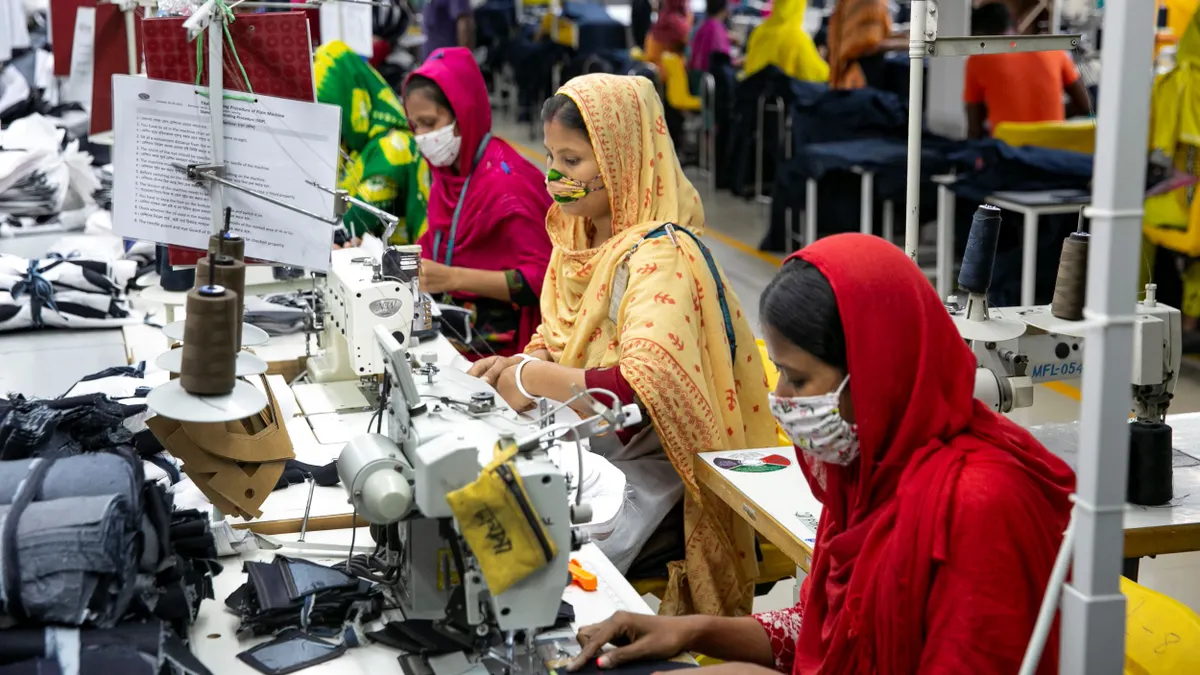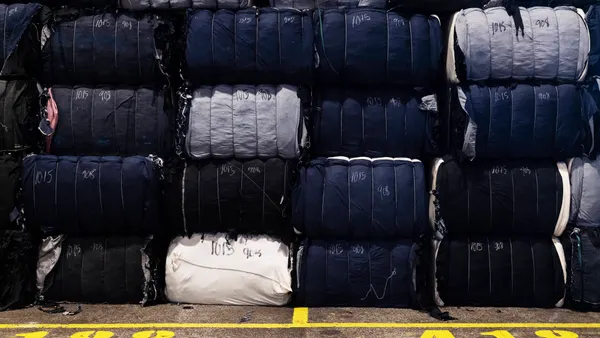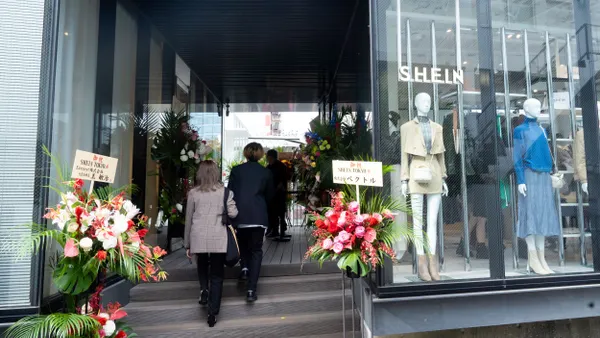Dive Brief:
- Extreme heat due to climate change is endangering garment workers in Bangladesh, according to a report from Climate Rights International released Tuesday.
- Information in the report was gathered from interviews with more than 50 workers across what CRI called “three of the most heat-exposed industries in Dhaka,” including the garment industry. Interviewees cited various heat-related health issues including dehydration, headaches, temporary vision loss, chest pain and loss of consciousness.
- CRI said Bangladesh is among the countries hardest hit by the climate crisis, and added that the country’s capital Dhaka is especially vulnerable because it recently experienced record-breaking high temperatures. This year, temperatures in Dhaka reached about 118 degrees Fahrenheit, according to the report.
Dive Insight:
Conditions for garment workers in Bangladesh have long been a topic of concern among government officials, fashion industry stakeholders and labor interest groups.
The country is the second largest exporter of readymade garments in the world, per data from the Asia Floor Wage Alliance, and the apparel industry represents about 11% of the country’s overall GDP.
Earlier this year, a group of fashion leaders and fair labor advocates urged the Bangladesh government to improve working conditions in the country’s manufacturing industry. Workers in the sector have been advocating for livable wages and better conditions.
In addition to workers in the garment industry, CRI also interviewed those who work in construction and transportation.
The report found that many workers were forced to continue working in extreme temperatures, with CRI noting that this made workers feel confused, desperate, hopeless and anxious. CRI said this resulted in productivity losses, with workers moving slowly and needing 50% more time than usual during the hot seasons.
“As multinational fashion brands make elaborate climate commitments and develop ‘eco-conscious’ clothing lines, the garment workers who support their supply chains are collapsing in the heat,” Cara Schulte, researcher and report author at Climate Rights International, said in an email. “But the impact of climate change on these workers continues to be routinely excluded from corporate ESG frameworks across the industry.
“If the fashion industry is going to achieve meaningful sustainability, it can’t stop at recycled materials and net-zero pledges; it has to include the workers that make the industry possible,” Schulte added.
The report found that a small number of companies have heat protections embedded in their supplier code of conduct, including VF Corp., parent company of Vans, The North Face and Timberland.
“CRI spoke with workers who claimed their factories supplied a number of brands, including VF, H&M, C&A, Walmart, Primark, and New Look, that are taking at least some steps intended to protect workers from hot workplace conditions,” according to a news release accompanying the report. “All of those workers told CRI that, despite the measures brands are taking, they continue to suffer in the heat.”
The report included worker recommendations for improving conditions, including asking the Bangladesh government to strengthen legal protections for health and safety, with heat-specific protections. Recommendations also included addressing the financial risks of heat-related productivity losses and ensuring workers are paid a living wage.











